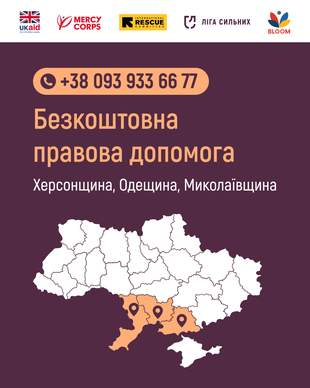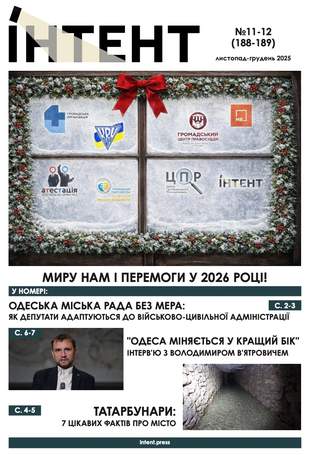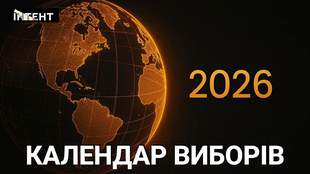Меню
Соціальні мережі
Розділи
Dec. 7, 2024, 8:16 p.m.
Innovations in the Time of War: Startups in the South of Ukraine
This article also available in English184
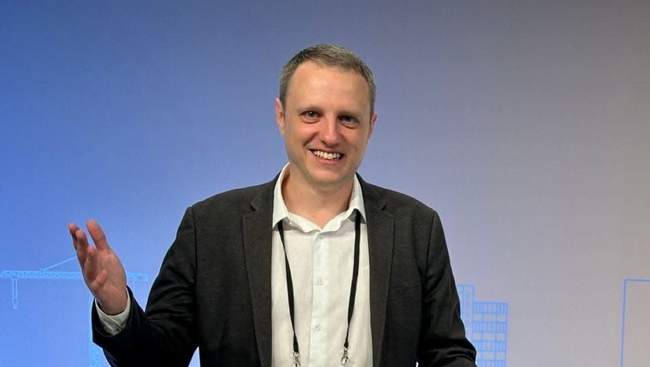
Jan Shapiro. Photo: U-Nation/facebook
Developing and integrating innovations into Ukraine's economic system requires funds. We talked to Jan Shapiro, founder/CEO of U-Nation Startup Accelerator, a project that promotes startups in the South of Ukraine, about the current issues in this area and opportunities for interesting businesses.
What startup topics are needed and are currently covered by the project in relation to the South of Ukraine?
We focus on all areas of our program, except Defense-tech and Military-tech, because it should be secret, and we are trying to popularize the culture of innovative enterprise. Of course, Odesa region always has leading areas: agriculture, logistics and tourism, which is not a priority during the war.
Our port is periodically shelled, and some regions are close to the occupied territories, so the responsibility for the agricultural sector has become even greater. There are climate changes that also affect the adaptation of entrepreneurs in this area. This includes the use of innovative technologies: storage, regularity of harvesting and collection.
There are many of the same technologies used in warfare. From experience, we know that the most popular technologies in the world used by civilians were not originally developed for them, such as the Internet. Also, the simplest type of drones will continue to be used in the agricultural sector. Drones are not only about collection, but also about technologies and programs that allow them to be used in other areas. Out of 10 startups, 3 are related to the agricultural sector, and another can be integrated into it.
One of the main focuses is international relations, this accelerator is international. Next week will be the tenth guest since the beginning of September. They come and conduct their trainings not online, but in person at our hub. In addition, we have more than 30 mentors and investors who are involved online.
When you tell them that we have startups from the agricultural sector, the world knows that this is a topic of Odesa, so investors are convinced. There should always be a logical connection. We don't want to be engaged in the space industry somewhere on an island.
We also have three university startups. One of them is a virtual laboratory for microcontroller development. Microcontrollers are chips that are used in all electronics. Taiwan develops most of the chips in the world. And this is very important, because many corporations can come to our country to open technological production facilities. Microcontroller development training is not popular here. If someone goes to work in IT, it's a little different. Therefore, such a program can be very useful for both the corporate sector and educational institutions.
U-Nation has launched a leading regional innovation accelerator and business communication platform. This project has brought together more than fifty international experts, companies, and funds to develop technology startups. U-Nation is actively cooperating with the Odesa Regional Development Agency and the Southern Ukrainian Cluster for Recovery and Reconstruction. Foreign companies and funds have the opportunity to feel a clear and predictable perspective for investment, creative ideas, and consistency in the development and implementation of startups.
How many startups are currently in the works?
We had a conference where we selected ten startups out of thirty-two. But not all ten were active. During the program, we opened up the opportunity for other startups to join our events. We changed some of them, because sometimes there are very talented and exclusive ideas, but when the team is not on fire, they do not give their full effort. And when someone doesn't break down and works every day, they have more chances, even with a worse product.
How do you measure the effectiveness and efficiency of these projects?
This is the first program that has been launched in about seven years in Odesa and in the South of Ukraine in general. It ends at the end of December and we will have a graduation ceremony in January. All these ten startups are at different stages of development of their companies. This is the first program, so we are still building an internal system. Last year, when we organized the event and startup presentations, there were three teams that traveled from Odesa to Kyiv and Lviv. Because there are programs there where they can develop. They had nothing to do here.
Among the projects is the farmers' agromarketplace, which already has 200 farmers on the platform. That is, they work and have some annual income. Such a project needs to scale up and enter new markets, but they are not zero.
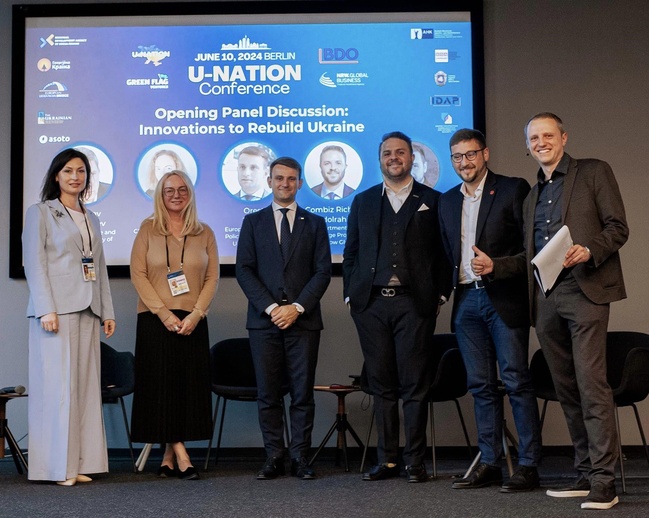
U-Nation in Berlin. Photo: U-Nation/Facebook
You mentioned international partners, what is their motivation to finance such projects and startups in the South of Ukraine?
When we negotiate, it is always about long-term relationships. One of the worst traits in our society is that we want everything at once and are not used to working for the future. And this trait, by the way, is the source of a lot of other bad things that we complain about, but it is the root. And when you start negotiating, you don't have to say, "Give us money. They are really all tired of humanitarian aid. But when you say that we want to build, create, we are working, this is a completely different attitude. I have a multi-step strategy. First, we talk a lot, then they join in as mentors, and then they get involved.
The basic concept is that these are innovative and entrepreneurial products that can find their niche in the recovery of Ukraine. We hope that it will happen as soon as possible, and that as many countries as possible will participate in it. Innovations play a very important role in the economy now. Therefore, this may even make it cheaper for investors to enter the Ukrainian economic system, and it is an opportunity to test. Before they build a plant, they can invest in a startup through which they can test the system.
Chlorella Algae Alive
A startup that offers the possibility of cultivating microalgae for their further use in various fields of activity.
Smart Hotel Assistant
A startup in the hospitality industry that offers an automated guest service product.
Spilca
A platform for trading food, fertilizers, and other agricultural products for farmers.
Parostok
This startup offers a product that improves the yield and resistance to drought and cold of crops.
FloweX
A startup that offers a smart home system to manage your home quickly and efficiently.
MC Lab
A startup that provides opportunities to study electronics remotely and develop electronic devices based on microcontrollers.
PowerPulse
A healthy lifestyle app that offers personalized workout programs and nutrition monitoring.
BR
Manufacture of electronic accessories that can be used to charge smart devices and carry them on your hands.
TOUCH VISION
A system designed to improve visual and motor skills.
Are there any startups in Mykolaiv and Kherson regions?
We have one startup with three team leaders from Mykolaiv and the region. We also have a project from Chornomorsk. It's difficult geographically because the program is physical, you have to come to the hub. There are partner organizations from Mykolaiv that join in.
It was an experimental launch, and we received a small grant for it. I see that there are already good reviews, and I hope that they will be even more than good. We plan to do this regularly. At most, we plan to launch a program. In this project, there are already startups that need to scale, not only to international markets but also in Ukraine. Because everyone wants to go to Silicon Valley, America, Europe, and there is no established systematic cooperation with other regions within the country. We haven't talked to our donors yet, but we may be able to attract support.
